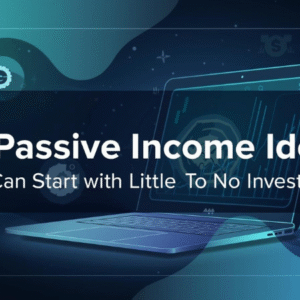If you’ve ever scrolled through social media and thought, “I’d love to try this,” you’re not alone. Becoming a content creator these days isn’t just about talent or fancy gear. It’s about taking the first step and figuring out what draws you in. Whether you dream of growing a YouTube channel, posting on Instagram, starting a blog, or jumping into TikTok, there’s truly something for everyone.
With all the platforms and content types out there, I know it can feel overwhelming, especially if you’re just starting out. The good news is, you don’t need a professional studio or viral-level creativity to get going. I’m sharing my favorite beginnerfriendly ideas, tools, and strategies so you can jump in with confidence, keep things affordable, and maybe even earn a little cash as you learn the ropes. There are more ways than ever before to set yourself up for success, even as a beginner, and it’s easier than you may think.
1. How to Find What to Create
The first hurdle is often figuring out what content you want to share. Picking a niche or focus helps guide your ideas, but you don’t have to lock yourself in right away. Here are some ways to brainstorm:
- List your hobbies and interests. Cooking, gaming, DIY crafts, travel, fitness, or even studying; almost anything can work as a topic.
- Think about what you search for the most. If you’re always looking up how-to videos or certain tips, others probably are too.
- Look at trending topics. Use sites like Google Trends, YouTube’s trending page, or TikTok Discover to see what’s popular right now and might inspire you.
Sometimes just sharing your progress as a beginner in something new makes for engaging content. People love authentic adventures because they’re relatable and inspiring. If you’re unsure where to start, dig into topics you genuinely enjoy or want to improve. Your early audience will appreciate your honesty and fresh perspective, and it’s a great way to figure out what you like sharing most.
2. Simple Video Ideas for Beginners
Getting on camera doesn’t have to be intimidating. Here are a few content ideas well-suited to beginners:
- Unboxing and reviews. Share your first impressions of a book, gadget, app, or any product you use. If you mention Amazon or other affiliate links, you can start earning small commissions even with a small audience.
- “How I Did It” tutorials. Record yourself working through a simple DIY, recipe, or even organizing your workspace. It’s both practical and helpful for viewers.
- Dayinthelife vlogs. Use your phone to show parts of your daily routine. No need for complex editing, just keep it real.
- Reaction and commentary. Offer your take on trending topics or viral challenges in your niche. Just make sure to give credit if you’re using others’ content.
Tools to Start With
- Canva (free with paid upgrade) for creating simple video thumbnails and graphics. Canva also has an affiliate program that’s worth checking out if you like making design tutorials.
- InShot (free/paid) and CapCut (free) are easytolearn mobile apps for basic video edits and adding captions. Both are good options if you don’t have desktop editing software yet.
As you build confidence, consider joining online communities for beginner content creators. You’ll find camaraderie, feedback, and more ideas to keep things fresh.
Turn Your Passion into Earnings
Get the Tools, Training and Support you need. All in One Place
Join a a Vibrant and Global Community of
Marketers and Entrepreneurs from Around the World
3. Blogging and Writing: Share Your Voice Without Video
If you’re not quite ready for video, blogging is a fantastic way to get your ideas out there. Starting is easier than it sounds, and writing can be just as creative as making videos:
- Write listicles or beginner guides. These perform well since people love quick tips like “5 Easy Pasta Recipes” or “Beginner’s Guide to Learning Guitar.”
- Roundups of resources. Pull together websites, books, or apps you’ve used; these posts often do well in search engines since others are seeking recommendations too.
- Personal stories. Share a challenge you overcame or a project you’re tackling; these posts help readers connect with you and make your content memorable.
Platforms for Blogging
- WordPress.com (free and paid plans) is a flexible platform for both portfolios and blogs. WordPress even has a referral program you can join after a while.
- Medium (free to start) lets you tap into builtin audiences who are interested in stories and guides. You can join their Partner Program to earn based on how many people read your stories.
Monetization Ideas
- Amazon Associates. Add affiliate links to products you mention. You’ll earn a small percentage when people shop through your links.
- Display ads. Once you build up some traffic, you can apply for Google AdSense or Ezoic and earn from ad impressions.
- Sponsorships and partnerships. As your audience grows, companies may reach out for sponsored articles or collaborations.
4. Podcasting: Start with Your Smartphone
If you enjoy interviewing, storytelling, or chatting about favorite topics, podcasting is a fun option. You don’t need much more than your phone to get started.
- Q&A or interviews. Reach out to friends or experts for short interviews using Zoom or your phone’s voice recorder. Focus on topics you find interesting.
- Solo episodes. Share life lessons, tips, or commentary on trends. Keep your episodes concise if you’re new to audio recording.
Starter Tools
- Anchor (free by Spotify) hosts your podcast and distributes it to platforms like Spotify and Apple Podcasts automatically.
- Audacity (free) works well for basic editing on desktops, especially if you want to clean up background noise.
Podcast affiliate programs aren’t super common at first, but promoting tools you use (like Canva or Amazon microphones) through affiliate links in your show descriptions is an easy way to start earning while you build your audience.
5. Social Media Posts: BiteSize Content That Sticks
Shortform videos and graphics are trending, especially on Instagram Reels, Stories, and TikTok. Don’t overthink it when you’re just getting started:
- Quick tips or hacks. Short, direct, and easy to film. “Three ways to…” or “A quick fix for…” are always useful ideas.
- Beforeandafter transformations. Show a room makeover, meal prep, a project, or even organizing your workspace. People love seeing real-world changes.
- Behindthescenes looks. Show how you create or prep for something. Audiences are curious about how things come together and like to see creative processes.
Pro Tip
Scheduling tools like Buffer and Later (free/paid) let you plan posts in advance. Both offer affiliate programs, perfect if you start loving a tool and want to recommend it to others in your network.
Pros and Cons of Content Creation for Beginners
Pros:
- You get to share your passions and connect with cool people worldwide.
- It’s affordable to start. Most tools have free versions for beginners.
- Potential to earn side income as you build up your content and grow your followers.
- Creativity grows over time. Sharing publicly can build your confidence and help you pick up new skills.
Cons:
- It takes time to build an audience and see solid results.
- There’s a learning curve with editing, search engine optimization, and staying consistent each week.
- Creative burnout and comparison can pop up if you’re not careful. Pacing yourself is really important, so remember to take breaks.
Looking for a training platform that actually works?
I’ve put together a full walkthrough of the affiliate marketing training that helped me build everything I have today. It’s practical, beginner-friendly, and you can try it out for free to see if it suits you.
Take a look at my honest review and see if it’s the right fit for you.
Practical Takeaways for New Content Creators
- Start small and simple. Use what you have and don’t wait for perfect gear or ideas. Most big creators started with a smartphone and passion.
- Try a few content types to see what you actually enjoy making. Your interests and audience will switch up over time and that’s totally normal.
- Sign up for beginnerfriendly affiliate programs like Amazon Associates, Canva, Buffer, or product links that match your content.
- Stay consistent but give yourself permission to experiment and have fun. All creators make mistakes—it’s how you learn and improve.
- Focus on learning and sharing value, not chasing numbers. The rest will follow if you’re genuine and helpful.
- Get involved in community groups for content creators online—Reddit, Discord, or Facebook groups are great places to ask questions and find encouragement as you grow.
Whether you’re into video, writing, audio, or quick social posts, there’s no one right way to start creating content. Pick an idea that feels doable, try it out, and don’t be afraid to change things up as you gain experience. Getting started as a beginner content creator is more about creativity, consistency, and learning than about having the best equipment. With a little patience and a willingness to learn, you’ll find your groove. You could even inspire someone else to create, too. So set your plan, start sharing, and enjoy building your own creative adventure!
Let’s make it happen!






Congrats on all your success! I also have finally made my big mark on the content creation community and I couldn’t be more proud! I wrote my short story about my first big job here if you care to take a look: https://www.funkyfrugalmommy.com/2025/09/my-first-big-paying-job-as-content.html?m=1
Oh, thank you 🙂 And big congrats to you too! We are living proof that hard work pays off 🙂
To our success!
Thanks for your comment 🙂